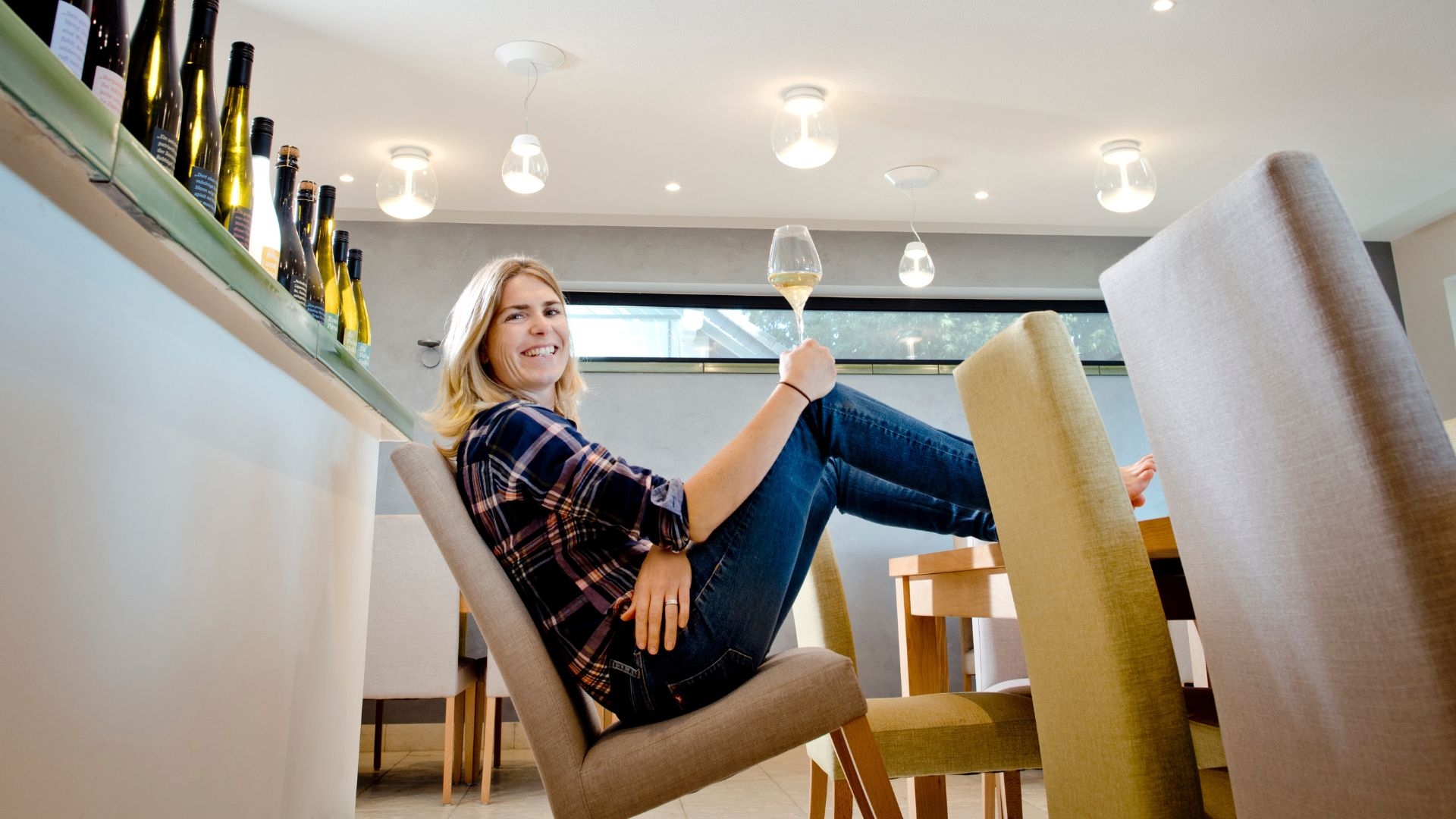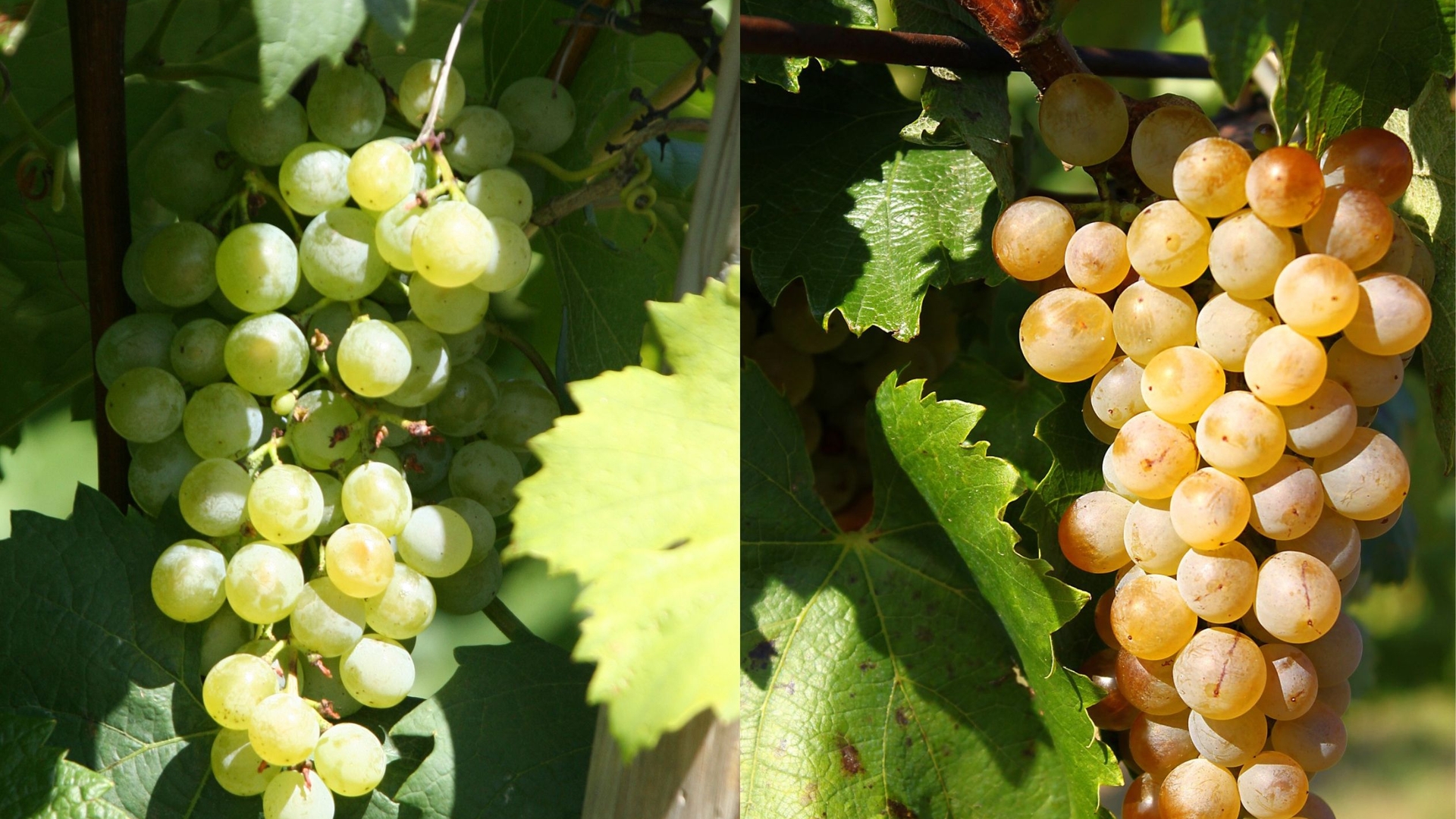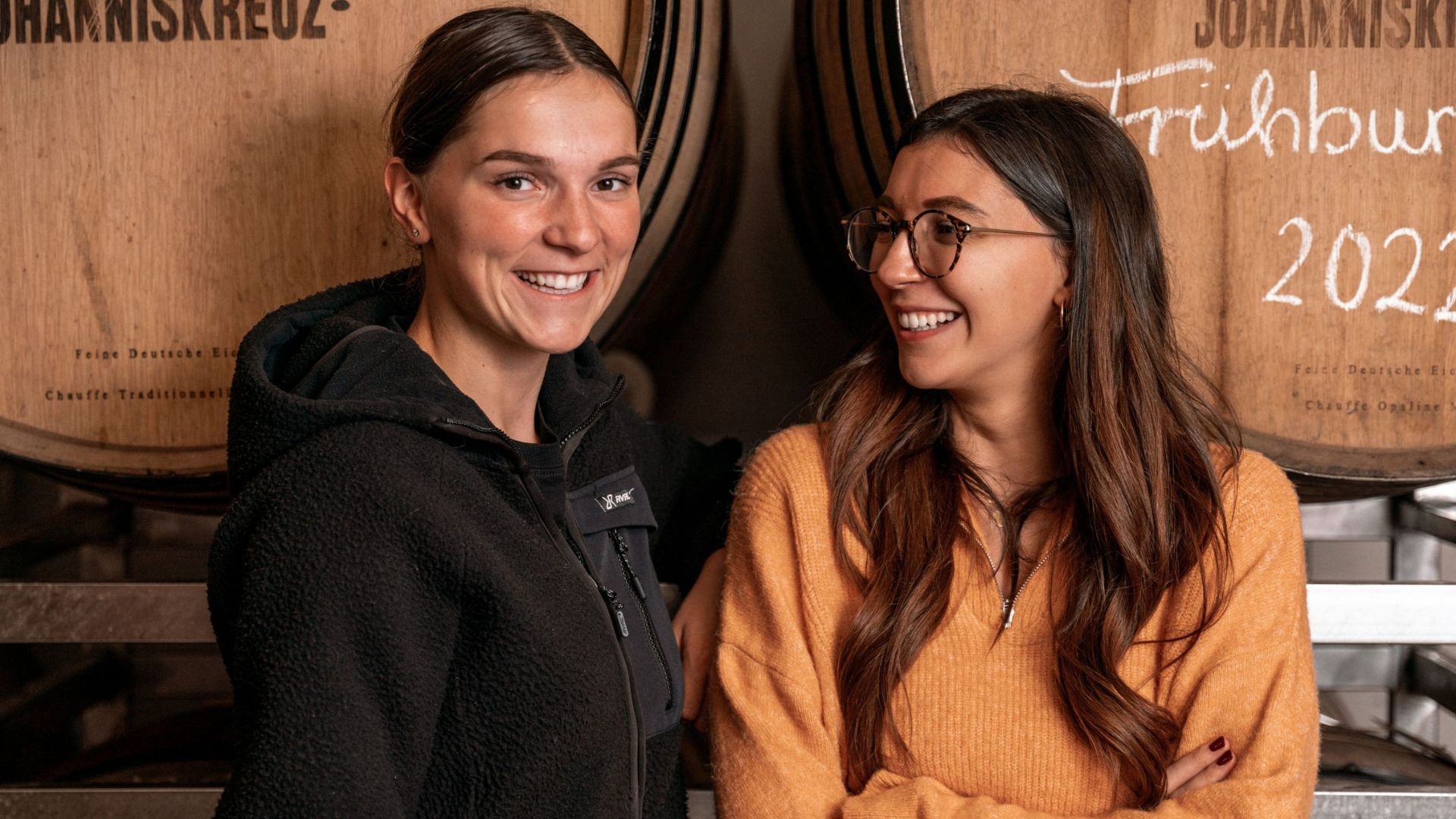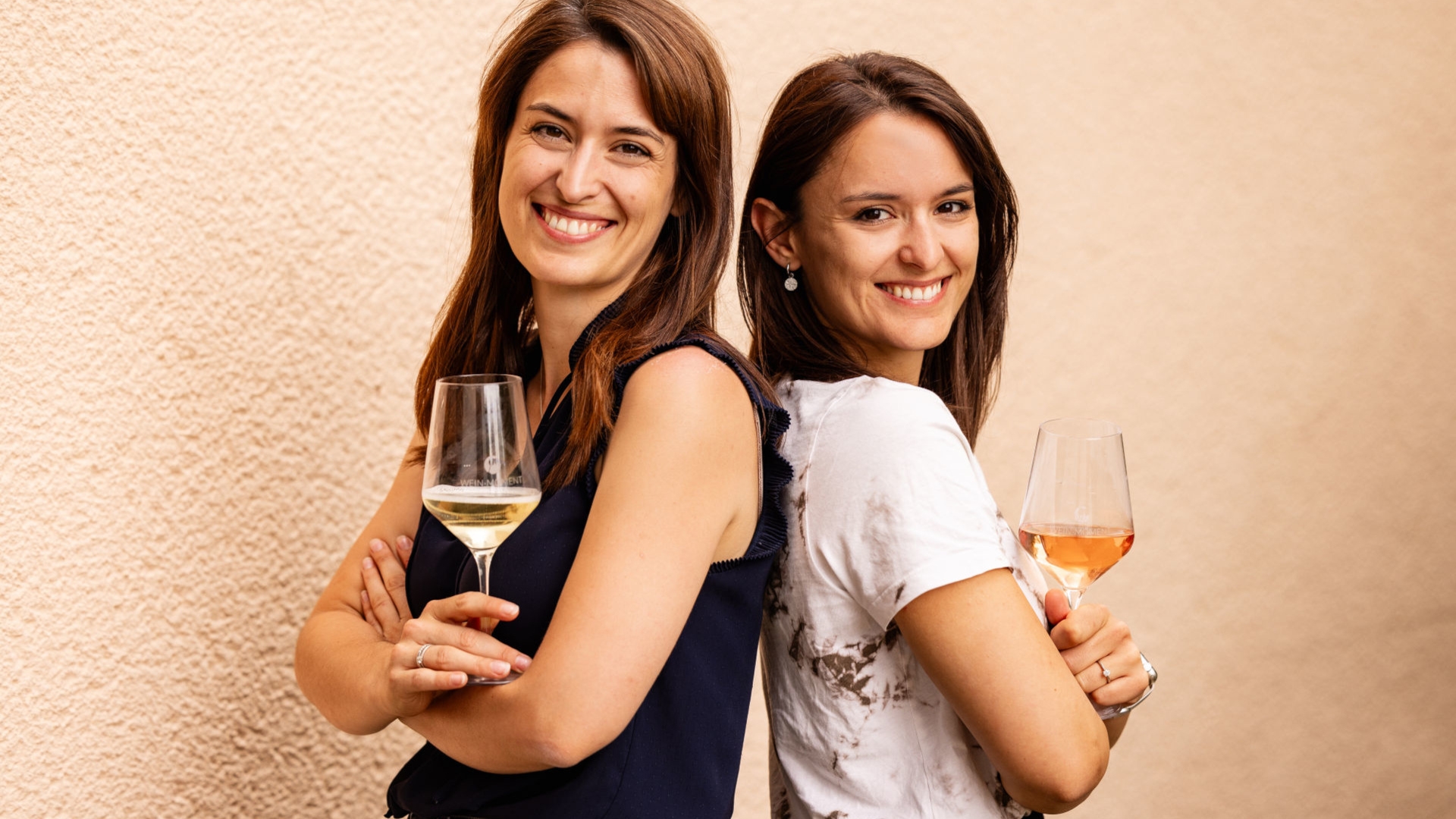A post by
Sylvia Kopp
author, trainer, consultant

She is the first female winemaker in Rheinhessen whose name is used for the winery and on the labels of her bottlings. And she initiated and co-founded Zukunftsweine GmbH, a marketing company for sustainable viticulture – Eva Vollmer is truly a woman who is changing the industry. She was recently a guest at an online event organised by women4beverages. Time to get to know this inspiring winemaker better.
Released on 20/08/2024

A post by
Sylvia Kopp
author, trainer, consultant
Vollmer never wanted to see herself as a "marketing monument," a mere figurehead for her brand. "I never saw myself in that role and never accepted it," says the organic winemaker from Mainz-Ebersheim. At her winery, Vollmer shares the duties of the mixed farming operation with her husband, Robert Wagner. Wagner is responsible for all technical matters and working with the machines in the vineyard and on the fields. "I'm not efficient on the tractor," Vollmer admits. But the paperwork for organic certification is easier for her. Most of all, Vollmer is in charge of the wine making. She coordinates the manual labor in the vineyard, which is essential to the quality of the harvest, and manages the work in the cellar, where she uses her sensory skills to age her wines. "I do everything," she says, "right down to marketing."
She founded the winery with her partner in 2007. The two took over 11 hectares of vineyards from Eva's parents' mixed agricultural business, which had previously delivered its entire harvest to a winegrowers' cooperative. The new founders built their winery from scratch, constructing buildings, purchasing equipment and installing cellar technology. "We were free to develop, we didn't have to take old labels into account when building the brand, but we also had no customers," says Vollmer. In the first year, they filled 4,500 bottles; now they have 70,000. "We're small," she says, "but self-reliant." The winery works with select partners and directly with consumers at the farm or through online orders.
For the professional brand development, Vollmer turned to an agency that "worked out the deep benefits that live in Eva Vollmer's company. And translate my creative energy to the outside world". The result is an image that is as authentic as it is refreshing, direct and blunt, yet attractive. The brand identity is tailored to Eva Vollmer. It is not just the visibility of her person, but about the matter itself and the purpose: her wines, the winery and the alignment of her business. Out of respect, she does not want to position herself as a female pioneer in viticulture: "In the generations before me, there were extremely cool women who made statements with their wines, even if their father's or husband's name was on the label".
Even stronger than the defense of patriarchal structures in viticulture is the battle between conventional and organic. "Organic is not good," is the widespread opinion in the industry. What's more, "anything new is really bad," says Vollmer. But the founding duo of Vollmer and Wagner knew from the beginning that they would run the farm organically. The winery has been certified organic since 2007. Vollmer brought some expertise from her studies. She studied oenology at the renowned Geisenheim Wine University and received her doctorate in 2007 with a thesis on "Plant protection in steep-slope viticulture". Her graduation class was the first to have a lecture on organic viticulture. And so Vollmer works with catch crops to keep pesticide use to a minimum. "Instead of turf, we experience blooming fields between the vines," she says. The plants help the soil retain more water and enrich it with nutrients. This makes the vines more resistant to pests and diseases. The topsy-turvy of plants also transform the monoculture areas into a biodiverse paradise.
In 2017, when their father retired, Vollmer and Wagner took over the entire farm, including grain production. That same year, the farm became certified organic. The farm's circular economy now even includes bee colonies and 16 horses, which provide manure for the soil and keep the kids from the local vaulting club happy. Social responsibility and natural farming – it’s all interconnected.
With her range of wines, Vollmer celebrates tradition and promotes modernity. In addition to traditional varieties such as Riesling, Dornfelder and Pinot Noir, she also cultivates the once lost historical variety of Roter Riesling, which thrives under the local conditions. Since 2016, Souvignier Gris, one of the new resistant varieties, also known as PIWI (pilzresistent, i.e. fungus resistant), ist also growing in Vollmer's vineyard. However, this variety posed several problems: "Nobody knows it, it has no standing in the industry, no power on the shelf and only raises questions among consumers." The "PIWI" category is not very helpful either, according to Vollmer: "Basically, you’re blurting out the fungus and the resistance.” Firm, but fair. – The biggest advantage of PIWI vines is that they can save 80 percent on pesticides. "These new varieties are gigantic for organic viticulture, gigantic for biodiversity and gigantic for the world of taste," she says, "their sensory profile is on a par with pinot gris and the like, and in some cases even better."
Luckily, the word "Zukunftsweine" came to Vollmer's mind. Her brand agency was thrilled, as was her friend and fellow winemaker Hanneke Schönhals. This opened the door to growing resistant varieties. "They had been around since the 1930s. Nobody has yet tackled their biggest weakness, which is marketing," Vollmer points out. So in 2016, together with Schönhals and other enthusiasts, she founded Zukunftsweine GmbH, a company, which is dedicated to marketing wines from sustainable cultivation.
Zukunftsweine is not aimed exclusively at certified organic wineries. The marketing company sees itself as an invitation to a development process in which even small agricultural winegrowing businesses can move step by step towards sustainability. “We are an open movement. We do not exclude anyone. We see ourselves as a platform for all businesses that want to increase the cultivation of robust vines,” says Vollmer. This is challenging because planting new vines is an investment for the long term. “In the first three years, new vines bring zero yields,” says Vollmer. There is also a certain risk involved because there is hardly any experience with the varieties.
70 wineries from Germany, Austria, Switzerland and Luxembourg have already joined Zukunftsweine GmbH. So far, resistant varieties have been cultivated on 3.8 percent of the vineyard area in Germany. In 2022, Zukunftsweine GmbH received the German Sustainability Award. “It's spreading like wildfire,” says Vollmer happily. Indeed, she considers the founding of Zukunftsweine to be her greatest success, “because it helps the entire wine industry.”
It's fun to listen to Eva Vollmer, she speaks in an unaffected and expressive way and is humorous and charming. She calls it "sensuality with a wink". This is also the case with her wines: "Liquefied Eva", she jokingly says. Vollmer values sensory variety and clear, free, playful structures with depth: "...that even the light summer wine sets creative highlights and brings everything to the stage that the moment demands.” As she explains, she plays especially with terroir, elegantly working out the limestone soils her vines grow on.
If you would like to experience this creative and self-confident winemaker live, ideally together with her liquefied counterpart, you can meet her at the Kostbar at her winery in Mainz-Ebersheim or at the next online wine tasting. Inspiration are guaranteed!

Raw material supply
A post by Horst Dornbusch

New grape varieties
A post by Elva Ellen Kowald

Young female winemakers
A post by Sylvia Kopp

More than classic wine tastings
A post by Nina Anika Klotz